The former ERC Research Team
Project Leader:
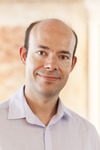
Prof. Dr. Philipp W. Stockhammer (Ludwig-Maximilians-Universität, Munich & Max Planck Institute for the Science of Human History, Jena; now: Max Planck Institute for Evolutionary Anthropology, Leipzig, Germany)
I am a prehistoric archaeologist with a particular interest in the Bronze Age – especially in the Eastern Mediterranean – as well as archaeological theory and the integration of archaeological and scientific analyses. Intercultural encounter, mobility and food cultures of the past have been in the focus of my interest for many years. I (co-)directed several collaborative research projects (“BEFIM”, “Times of Upheaval”) in which we aimed at writing a novel bioarchaeologically inspired prehistory.
Email: philipp.stockhammer(at)lmu.de
Project Members:
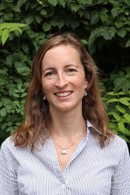
Dr. Victoria Altmann-Wendling (University of Würzburg, Germany)
PostDoc
I am an Egyptologist with a particular interest in Egyptian temples as well as ritual and funerary practice. Within FoodTransforms, I study the hieratic inscriptions on ceramic vessels, which are otherwise studied by Maxime Rageot for their organic residues. I am then correlating the scientific data from residue analysis with the information of the labels on the vessel in order to better understand ancient Hieratic terms for food, which we still cannot fully understand. In this study, I also include other (textual) sources about food in Ancient Egypt.
Email: victoria.altmann(at)gmx.de
Dr. Stephen Buckley (Eberhard Karls Universität Tübingen, Germany)
PostDoc
My focus is organic chemistry. My part of FoodTransforms is the analysis of lipids and biomarkers from human dental calculus, which I extract from our samples with the help of Thermal Desorption – Gas Chromatography – Mass Spectrometry. With this method, I am able to trace past individual consumption of e.g. specific spices, fruits of vegetables. Above else, I have been working on Egyptian mummification as well as on Neanderthal diet.
Email: sb55(at)york.ac.uk
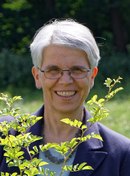
Dr. Janine Fries-Knoblach (Ludwig-Maximilians-Universität, Munich, Germany)
Postdoc
I am a prehistorian with an interest - amongst others - in agriculture and nutrition. I joined Philipp Stockhammer's team at Munich midway through the project and focussed on research for papers on Eastern Mediterranean Bronze Age plant food and seafood. My main task is collecting and integrating cultural-historical background information with the project's scientific results. I co-authored and edited several of the project's papers and assisted with project management.
Email: j.friesknoblach(at)lmu.de
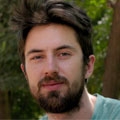
Dr. Robert C. Power (Ludwig-Maximilians-Universität, Munich, Germany)
PostDoc
As an archaeologist, I have placed my focus on the analysis of phytoliths and starch grains. Phytoliths are silicious compounds in all plants which survive for many years – even if all the other remains of the plant have long been lost. When humans consume plants, these phytoliths can get embedded in their dental calculus and I am tracing past Bronze Age diets on the basis of the extraction of these phytoliths from the FoodTransforms samples.
Email: robert_power(at)eva.mpg.de
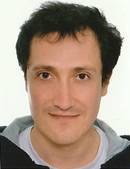
Dr. Maxime Rageot (Ludwig-Maximilians-Universität, Munich, Germany)
PostDoc
I am an archaeochemist trying to integrate archaeological evidence with the results of organic residue analysis which I have been conducting for many years. Within FoodTransforms, I am analyzing organic residues in Egyptian vessels of the 2nd millennium BC, which have their content as a label written on them. My aim is to trace the previous contents of the vessel. Before FoodTransforms, I have been working on early Celtic drinking pratices and their interest in a broad spectrum of alcoholic beverages.
Email: maxime.rageot(at)uni-tuebingen.de
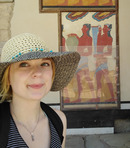
Aurora Allshouse
PhD Candidate (Department of Anthropology, Harvard University), and PhD fellow through the Max Planck-Harvard Archaeoscience of the Ancient Mediterranean (MHAAM) Initiative
My work uses a multidisciplinary approach - combining stable isotope analysis, ZooMS, Bayesian statistics, and shotgun proteomics - to understand dietary practices in the human past. I'm particularly interested in the role of non-staple foods such as seafood in the Bronze Age Aegean. Within FoodTransforms I help to contextualize the findings from biochemical analyses with the broader isotopic ecology of the Aegean basin and identify broad patterns in our data using statistical models and machine learning.
Email: afallshouse(at)g.harvard.edu

Richard Hagan (Ludwig-Maximilians-Universität, Munich & Max Planck Institute for the Science of Human History, Jena, Germany)
PhD Student
I am very much interested to further develop the field of ancient proteins by developing novel methods to study their traces. Within FoodTransforms, I have been working on new laboratory protocols for the extraction of proteins from human calculus as well as on computational tools to optimize the further analysis of the protein data after extraction. I am also part of Christina Warinner’s group in Jena and hope to shed a new light on proteins consumed by human individuals in the Late Bronze Age Eastern Mediterranean.
Email: hagan(at)shh.mpg.de
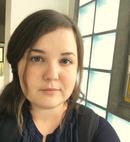
Ashley Scott (Ludwig-Maximilians-Universität, Munich & Max Planck Institute for the Science of Human History, Jena, Germany)
PhD Student
My area of specialization is biochemistry and molecular biology and I am focusing on dietary proteins within Bronze Age human dental calculus. My special interest are dairy proteins and the further development of our methodological tool-box to study these proteins. As part of Christina Warinner’s group in Jena, I will try to target specific dietary proteins which are preserved in the calculus of the FoodTransforms samples in order to get novel insights in past consumption of dietary proteins.
Email: scott(at)shh.mpg.de
Collaboration Partners (in alphabetic order):
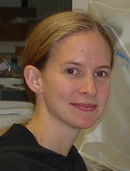
Dr. Amanda G. Henry (University of Leiden, The Netherlands)
Associate Professor
As part of my ERC project HARVEST, I have been studying both what early hominins ate and why they chose the foods they did. I have a strong background in the analysis of micro remains within dental calculus. For FoodTransforms, I serve as the external advisor for Robert Power's work on starch grains and phytoliths.
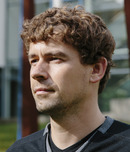
Dr. Johannes Krause (Max Planck Institute for the Science of Human History, Jena, Germany)
Professor
As director of the Department of Archaeogenetics at the Max Planck Institute for the Science of Human History, Jena, I was able to intensively drive forward the field of archaeogenetics in the last years. My particular focus is human and pathogen DNA and the related possibility to trace human migration and the spread and development of human diseases in the past 10,000 years. Within FoodTransforms, I am supervising all efforts to extract dietary DNA from dental calculus.
Email: krause(at)shh.mpg.de
Dr. Joachim F. Quack (University of Heidelberg, Germany)
Professor
I am directing the Institute of Egyptology at the University of Heidelberg and have been working on ancient Egyptian texts – especially in Hieratic and Demotic – for many years, whereby the “Book of the Temple” has found my particular interest in the past few years. Within FoodTransforms, I am working together with Victoria Altmann-Wendling on the correlation of Egyptian texts on food and the scientific data of the organic residue analyses conducted by Maxime Rageot.
Email: joachim_friedrich.quack(at)urz.uni-heidelberg.de
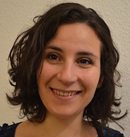
Dr. Cynthianne Spiteri (Eberhard Karls Universität Tübingen)
Junior Professor
My field of interest are organic residues in pottery vessels, which I have been working on for many years. Before FoodTransforms, I co-directed the project “BEFIM: Bedeutungen und Funktionen mediterraner Importe im früheisenzeitlichen Mitteleuropa” together with Philipp Stockhammer. We analysed a large corpus of Early Celtic and imported Mediterranean vessels from the early 1st millennium BC in Central Europe in order to better understand the transformation of Celtic consumption habits due their encounter with Mediterranean practices. Now, the two of us are jointly supervising all analysis of organic residues within FoodTransforms.
Email: cynthianne.debono-spiteri(at)uni-tuebingen.de
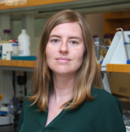
Dr. Christina Warinner (Max Planck Institute for the Science of Human History, Jena)
Professor
As head of the proteomics group at the Max Planck Institute for the Science of Human History, I am very much interested in the production and consumption of fermented food in the past. I have developed novel methods to study dietary – especially milk – proteins in dental calculus, which enable us now to much better understand what kind of dairy products humans consumed in the distant past. I am supervising the work of Richard Hagan, Aurora Allshouse and Ashley Scott within FoodTransforms.
Email: warinner(at)shh.mpg.de

